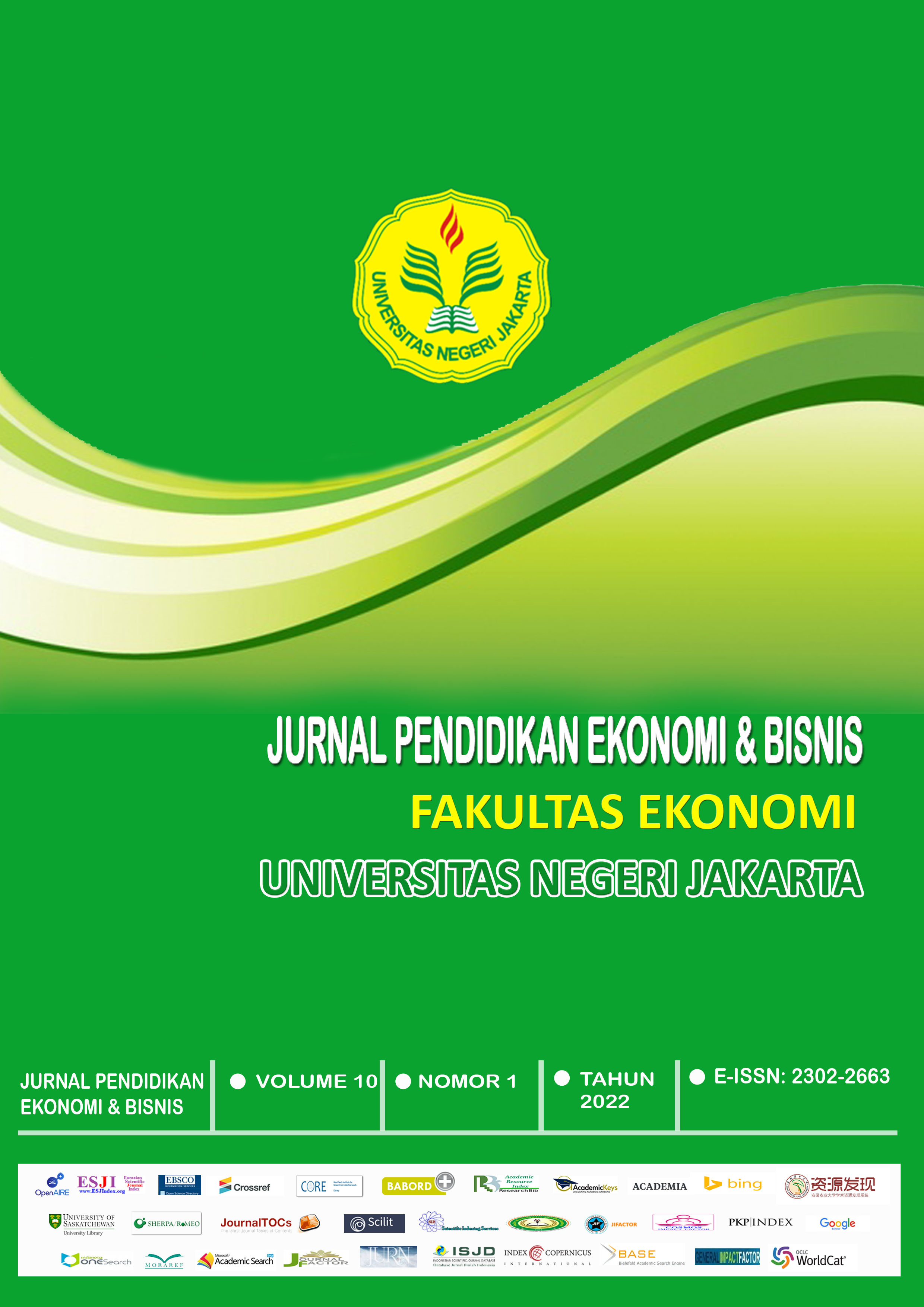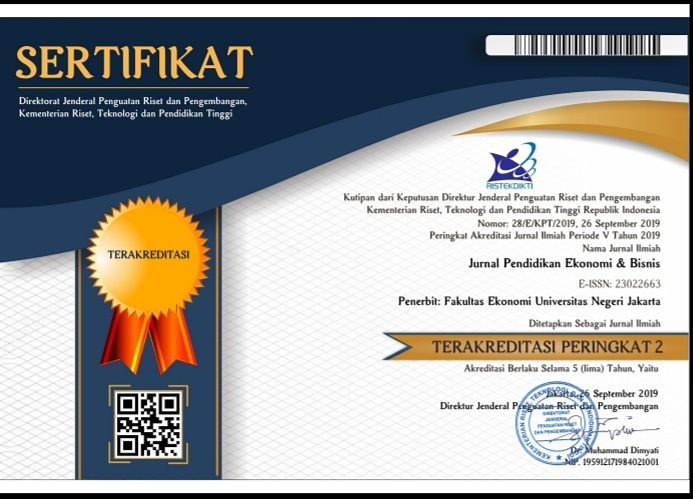Restaurant Taxpayer Compliance: The Role of Social Relations and Tax Sanctions
DOI:
https://doi.org/10.21009/JPEB.010.1.5Keywords:
Regulatory Understanding, Social Relations, Tax Sanctions, Tax Audit, Taxpayer ComplianceAbstract
Restaurant tax is one type of state income that can strengthen economic stability. However, due to the economic crisis due to the pandemic, the target for restaurant tax revenues is not optimal. The purpose of this study aims to examine the impact of social relationships and feed sanctions on mandated tax compliance. This research targets restaurant taxpayers who have been registered at Regional Revenue Office (Bapenda) DKI as many as 50 taxpayers with a sample selection technique using accidental sampling. The sample involved in this study is restaurant taxpayers registered with the DKI Jakarta Bapenda using accidental sampling with 50 restaurant taxpayers. The data collected was then analyzed by multiple regression and processed using SPSS. Hypotheses testing has established that tax audits, regulatory comprehension, and tax sanctions all have a favorable effect on restaurant taxpayer compliance. The social relation variable does not affect restaurant taxpayer compliance. The higher and stricter the tax sanctions, the higher the compliance of restaurant taxpayers. Tax sanctions are used to ensure that taxpayers adhere to restaurant tax payment requirements. Thus, taxpayers will be informed if they are subject to tax penalties for violating and failing to comply with their tax duties.
Downloads
Published
How to Cite
Issue
Section
License
Articles in Jurnal Pendidikan Ekonomi & Bisnis are Open Access articles published under the Creative Commons CC BY-NC-SA License This license permits use, distribution and reproduction in any medium for non-commercial purposes only, provided the original work and source is properly cited. Any derivative of the original must be distributed under the same license as the original.








